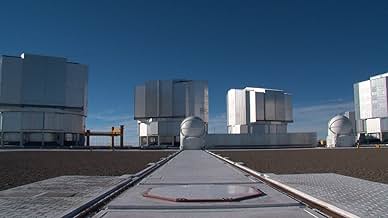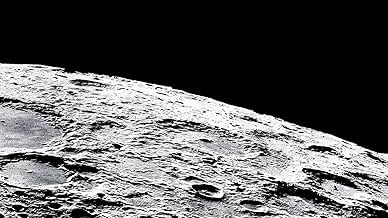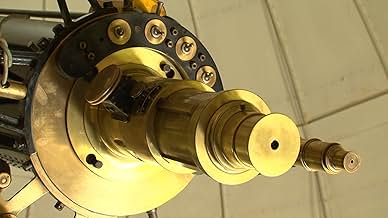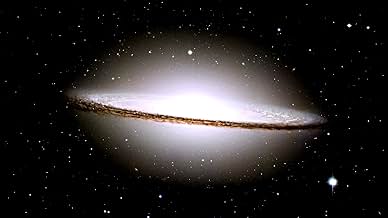A documentary about two different searches conducted in the Chilean Atacama Desert: one by astronomers looking for answers about the history of the cosmos, and one by women looking for the r... Read allA documentary about two different searches conducted in the Chilean Atacama Desert: one by astronomers looking for answers about the history of the cosmos, and one by women looking for the remains of loved ones killed by Pinochet's regime.A documentary about two different searches conducted in the Chilean Atacama Desert: one by astronomers looking for answers about the history of the cosmos, and one by women looking for the remains of loved ones killed by Pinochet's regime.
- Awards
- 13 wins & 20 nominations total
- Director
- Writer
- All cast & crew
- Production, box office & more at IMDbPro
Featured reviews
A group of women search for their beloved ones killed during Pinochia's Military dictatorship. Astronomers discover the early beginnings of life. Archaeologists narrate the history of lost civilizations. They revisit the desert each time in search for answers to the same questions.
We shift through two realms through the ethereal sounds and sights that form throughout the film. The past, present and future constitute our lives. Amnesia is a nation's curse up until front- liners revive history.
The brutal results of Pinochet's military dictatorship are meshed with the search for the origins of the universe. Both subjects deal with the past, as we only have past and future; there is no present as Augustine said many years ago.
So, astronomers are really archaeologists. They study space to discover the past. Writer/director Patricio Guzmán combines this "archaeology" with the archaeologists who search the desert for the bodies buried by Pinochet.
A fascinating story.
Until I watched it, I honestly didn't know that the best place in the whole world to search for light from the universe, also possesses the remaining of a mass tragedy that Chile went through. The movie brought these two things coherently, and it has this incredible comparison between a two distinct opposites, the beauty of the universe, and the ugliness of ourselves.
Somewhere in the movie one has to ask himself many questions. In a universe this vast with endless dots spreading all over its unbelievably ample space, with each dot as a whole star, smaller, similar or larger than the Sun; why do teeny tiny humans on Earth act so blindly to each others?! What is the purpose of knowing what's up there a million light years away while we still can't understand or deal with what's just beneath our noses? How come we were able to develop such powerful telescopes to look deep into outer space but not being able to develop a clearer insight to our own kind? And, how absurd it is to seek political power at any cost.
This beautiful movie provokes such questions and more, using the hardest way imaginable. Beautiful, but sad documentary.
What I found was that this isn't really a documentary in the traditional sense; yes it is real life and fact based, but we don't have a specific subject revealed or examined in the way you would expect from a historical documentary. Instead what we get is more of a musing or mediation that plays like a combination of documentary, poetry, art and science (non) fiction. This sounds pretentious but it really isn't and the way it is presented means that discussions about how there is no actual "present" and that our atoms come from the stars sit comfortably next to discussions with a woman whose parents were disappeared when she was 1 year old and a 70 year old who goes daily into the desert endlessly searching for bones of those dumped there decades prior. All of it works and is equally engaging and, more importantly, compliments each other in a way I didn't expect.
Content-wise the film has a real peaceful beauty to it while also looking at terrible situations with a lot of pain and loss. It is fitting that the film is also visually beautiful. The use of shots of galaxies spinning through the clear sky over the desert is a real help to this, but even smaller moments of a woman picking through dirt are really well shot and do not contrast with the shots of space. The visuals add to the content really well and I was surprised by how engaged I was; it wasn't that it informed me about a lot (although it did a bit) but more that it invited me to think with it, to muse with it and I really enjoyed that sensation.
As an idea it really shouldn't work at all and experience tells me it should have come out as a pretentious piece of soul searching like an art student did it, but it is nothing of the sort. It is beautiful, engaging, thought-provoking and really well filmed and constructed. Go with it – it is very good.
Did you know
- TriviaIncluded among the "1001 Movies You Must See Before You Die", edited by Steven Schneider.
- Quotes
[last lines]
[in Spanish, using English subtitles]
Gaspar Galaz - Astronomer: [voiceover] I am convinced that memory has a gravitational force. It is constantly attracting us. Those who have a memory are able to live in the fragile present moment. Those who have none don't live anywhere. Each night, slowly, impassively, the centre of the galaxy passes over Santiago.
- ConnectionsEdited into P.O.V.: Nostalgia for the Light (2012)
- How long is Nostalgia for the Light?Powered by Alexa
Details
- Release date
- Countries of origin
- Official site
- Languages
- Also known as
- Nostalgia for the Light
- Filming locations
- Production companies
- See more company credits at IMDbPro
Box office
- Gross US & Canada
- $163,962
- Opening weekend US & Canada
- $5,664
- Jan 16, 2011
- Gross worldwide
- $410,903
- Runtime1 hour 30 minutes
- Color
- Sound mix
- Aspect ratio
- 1.85 : 1
Contribute to this page




















